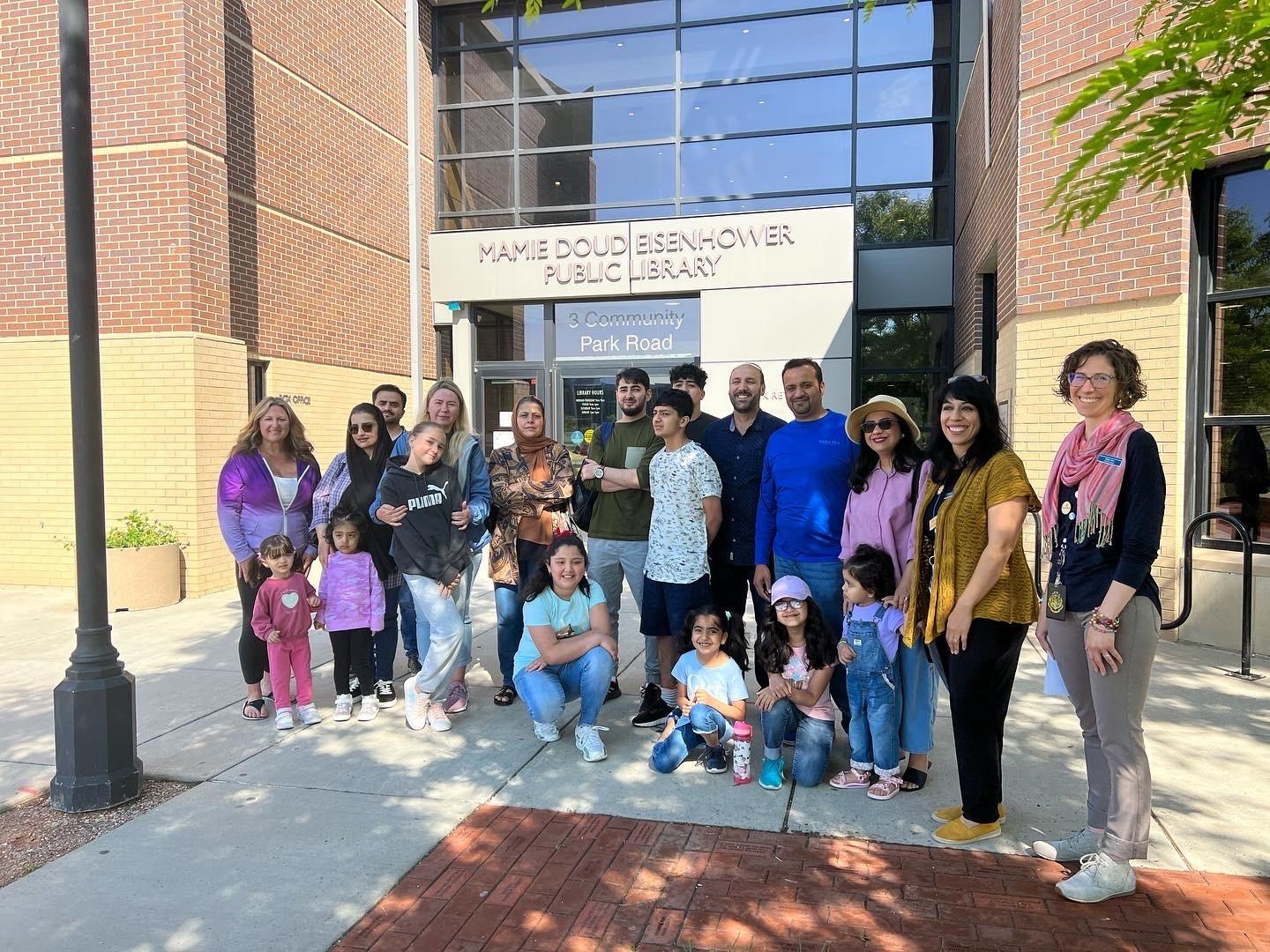
In the year since the United States withdrew troops from Afghanistan, about 2,600 evacuees have settled in Colorado. Among them are Ahmad Siddiqi, Salma Rahin and their families.
Siddiqi worked as an interpreter for American soldiers and high-ranking diplomats for 20 years. When the Taliban moved to capture Kabul in August, 2021, he fled the capital city with his wife and children, landing a spot on a military airplane out of the country.
Rahin was a medical student, preparing for a school exam when the Taliban seized control of the country. As her family tried to evacuate, a bomb exploded at the airport, killing her father and two of her cousins. The remaining family was severely wounded and transported to a hospital in the U.S.
Broomfield City Councilwoman Heidi Henkel, whose husband served in Afghanistan, formed a local task force to help families like the Saddiqis and the Rahins find their way.
The three spoke recently with Colorado Matters host Ryan Warner.
Ahmad Siddiqi
On August 22, 2021, shortly after the Taliban had seized Kabul, Ahmad Siddiqi drove the darkened streets of Afghanistan’s capital city. Because he had been an interpreter for the U.S. for 20 years, he knew the Taliban were searching for him and he was afraid to go home.
An American contact messaged him and told him to quickly gather his family and head to the airport, where U.S. soldiers would help them evacuate the country.
Siddiqi rushed home, assembled his wife, Horia, and their four children, grabbed a few provisions and made for the airport. There was no time to say goodbye to his parents or other relatives, and it wouldn’t have been safe anyway. Because he had worked with American forces, his relatives could have been in danger just for knowing him.
The airport was chaotic. The Siddiqis were directed to one gate after another before they found American soldiers. But the Americans were on the other side of a sewage ditch, which the family had to wade through to reach the soldiers.
A few hours later, the family boarded an American military aircraft with almost 500 other evacuees.
Siddiqi remembers the faces of the other people on board: “The unhappiness, the sorrow, the pain. You could see it.”
That flight was the beginning of a months-long journey that had stops in Qatar, Italy, Pennsylvania and New Jersey.
The Siddiqi kids were skeptical of the riches their father had promised America would provide, like Spiderman and pizza. But American friends had sent the family a $200 gift card, and while the family was waiting at an airport in New Jersey, Siddiqi told his kids they could use the card to buy food. They ate all the hamburgers and fries they could. “I [said], this is proof…You are in the U.S. now.”
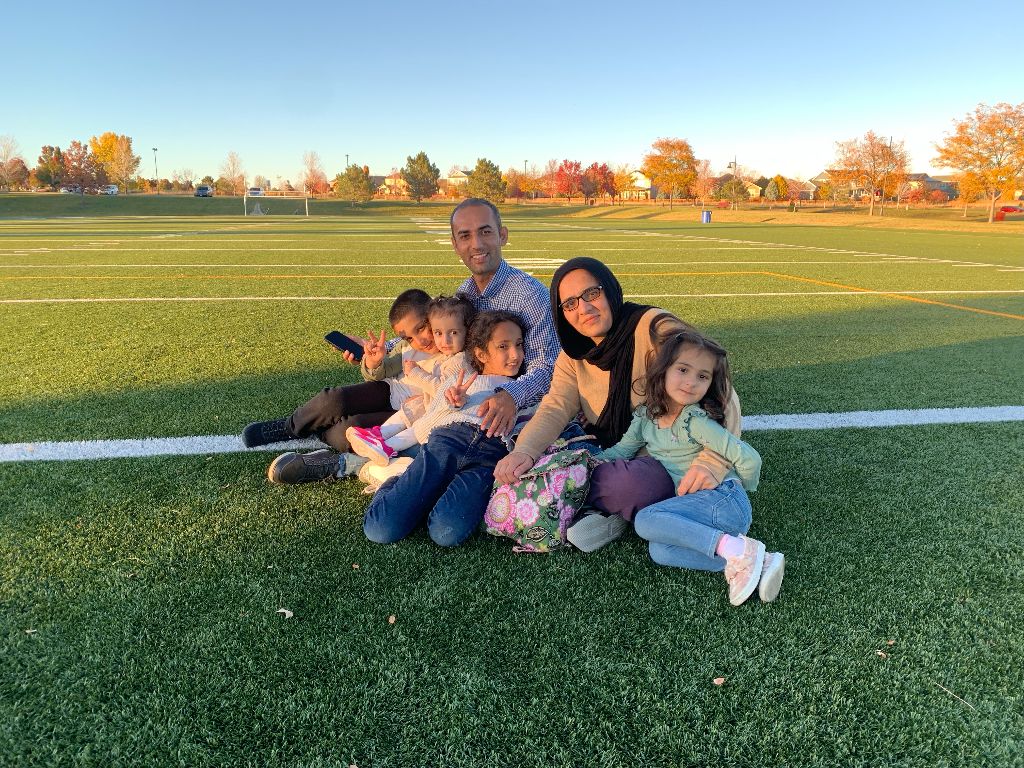
In Colorado, the American friends who had donated that gift card were waiting.
Retired Army Captain Scott Henkel had met Siddiqi in 2006 when he was stationed in Afghanistan and working as part of a Provincial Reconstruction Team.
Siddiqi was Henkel’s interpreter during that work, and the two men had stayed in touch through the years. As the situation in Afghanistan deteriorated, the Henkels lobbied U.S. officials to get the Siddiqis out of the country, and offered them a safe haven in Broomfield.
On Oct. 5, 2021, the family arrived at Denver International Airport.
The year since has been hard. Though Siddiqi has two college degrees, has worked for the U.S. Military, the State Department and the United Nations in Afghanistan, he has struggled to find a job that even comes close to his skillset. Right now, he delivers for HelloFresh and drives for a ride-share company. He looks for jobs better suited for his skills every day, but so far his cover letters have gone unanswered.
Though he misses Afghanistan and the family he left behind, there is no real hope of a return. The kids enjoy school and the family is doing its best to adjust to life here.
“Colorado opened its arms and embraced us and gave us a home. That is home at this moment. I cannot go to Afghanistan,” Siddiqi said.
Salma Rahin
On August 26, 2021, Salma Rahin and her family were at Kabul Airport waiting to evacuate Afghanistan when a bomb went off. The blast killed over 100 Afghans and 13 U.S. soldiers. It tore through Rahin’s family, causing her father to collapse at her side.
As a medical student, the 21-year-old Rahin’s training kicked in and she began treating her father’s wounds. “At that time, the only thing that came into my mind was all of the things I learned at the hospital to help him, like CPR,” she said. “So, I tried to give him some breathing and CPR.”
When nearby soldiers came to help, they realized Rahin and her other family members were badly wounded, and they took them away for medical treatment. Rahin learned months later that her father had died, probably that day.
The surviving family members were evacuated to Walter Reed Medical Center in Washington D.C., where they spent four months. Rahin had a badly broken shoulder and arm, and shrapnel was still lodged in her body. One of her brothers suffered severe wounds to his abdomen and his eye.
They were joined in Washington D.C. by Rahin’s aunt, Ella Nabiyar, who had moved to the U.S. 20 years ago and now lives in Broomfield. When the Rahins were released from Walter Reed they came to Colorado.
Today, Rahin lives in Broomfield and works as a medical assistant. She is the main financial support for her mother, grandmother, five siblings and a cousin who came to the U.S. last year.
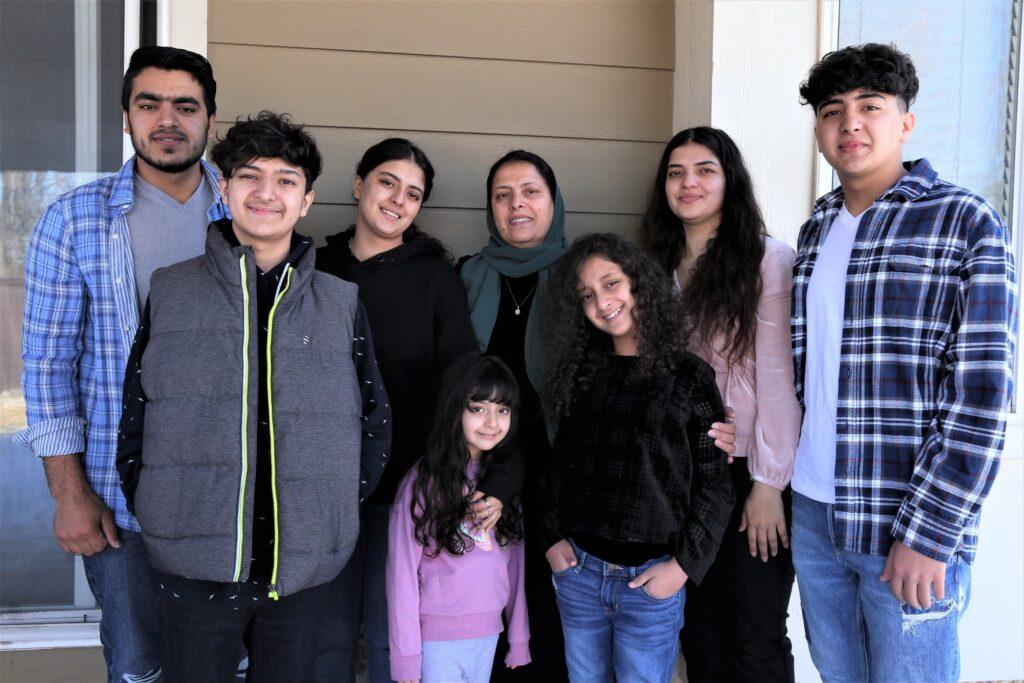
Not all of their wounds have healed. “Most of the time, it looks like I’m physically good but my mind is, like, I have a wounded mind,” Rahin said.
In Afghanistan, she was on track to follow her father into the medical profession, and her mother was a math teacher and her sister was studying law.
“Before everything happened I had a hope, I had a wish. I had a dream,” she said. “One day everything happened, and I came here. Right now, I’m just thinking: how should I support my family?”
Rahin said she’s getting mental health therapy to help her cope with her trauma. She sees her job as a medical assistant as a good step toward resuming her medical education and becoming a doctor here.
In her few spare moments, she takes solace in Colorado’s mountains, which are a lot like the ones back home. “I feel very relaxed whenever I’m seeing the mountains or walking or hiking,” she said.
Heidi Henkel
When Afghanistan erupted in chaos last year, Heidi Henkel and her husband, Scott, were home in Broomfield.
Scott Henkel served in Afghanistan in 2006, as part of a Provincial Reconstruction Team that helped rebuild rural communities. The team was often in danger and at their side was Ahmad Siddiqi, the interpreter.
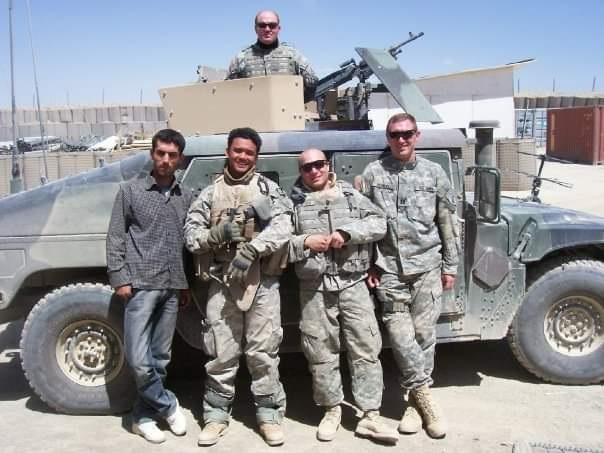
At home in the U.S., Heidi Henkel, who is now a Broomfield City Council member, regularly sent the group care packages. And after Scott Henkel returned to the U.S., the couple stayed in touch with Siddiqi.
As conditions worsened in Afghanistan in 2021, the Henkels tried hard to get Siddiqi and his family out of the country.
“The day that Kabul fell I couldn’t look at my husband, knowing that he felt like he left a man behind,” Heidi Henkel recalled. “I have never seen his face like that, ever. I’ve never seen him so sunken and so depressed so quickly.”
Scott Henkel knew what would happen if Siddiqi were left behind. “That meant death for not only [Siddiqi], but his wife and kids,” Heidi Henkel said. “We could not let that happen.”
The Henkels enlisted the aid of several Colorado politicians to get Siddiqi and his family out of the country. Once the family left Afghanistan, Heidi Henkel began planning for their arrival in Broomfield, which included arranging for a house, a car and furnishings.
But it wasn’t just the Siddiqis who needed a new start. Heidi Henkel soon discovered that several other Afghan families were moving to the area and she put together a nonprofit, volunteer-run Broomfield Resettlement Task Force to help.
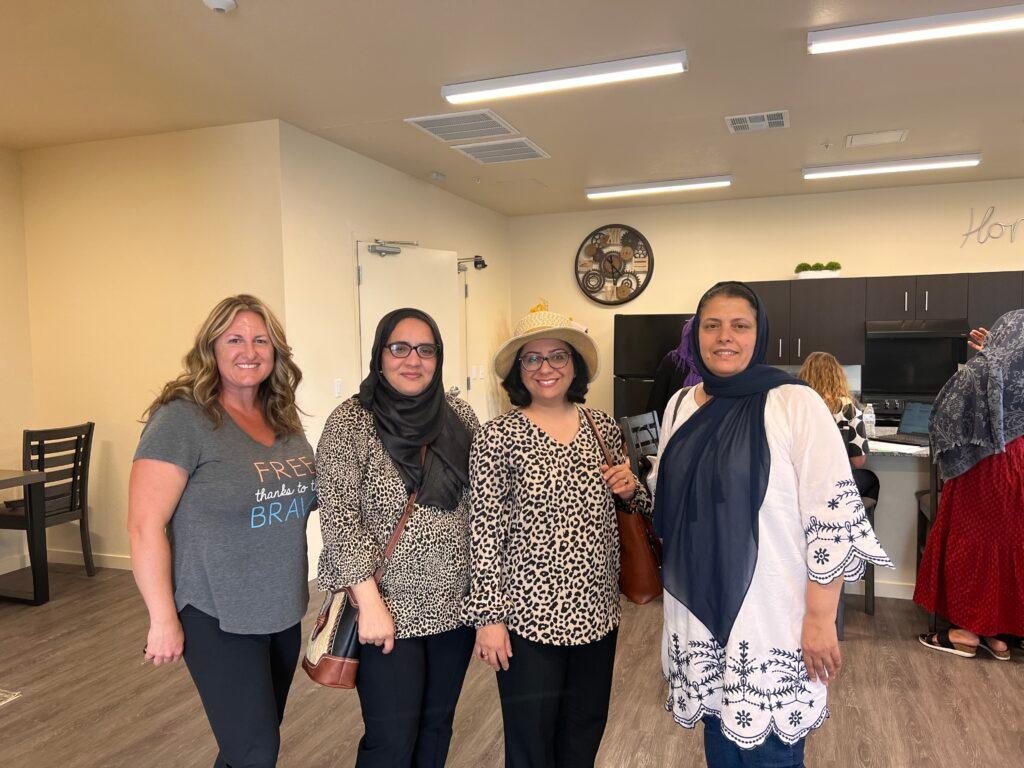
The task force has raised money for evacuees through the Broomfield Humanitarian Fund, and it provides practical support for navigating life in the U.S., such as English language lessons, and help finding jobs, housing and social services. Sometimes it just comes down to relatively small things, like finding a dentist who accepts Medicaid, Henkel said.
“Broomfield is a very affluent area and we found out very quickly that we were not equipped to serve refugees,” Henkel said. “So we figured out how.” Later this month Henkel will receive the Heart of Broomfield “Angel” award for her work with the task force.
The lessons learned a year ago have allowed the task force to help others. When war broke out in Ukraine earlier this year, the group expanded to help Ukrainians resettle, too.
It currently serves about 40 people, including seven Afghan families and two Ukrainian families.
“When people say how long does it take to resettle evacuees," Henkel said. “I tell them, how long do you have? Because it never really settles down.”








